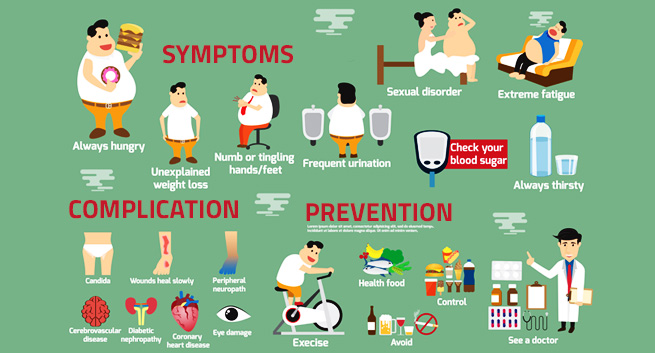Did you know that there are very few diseases that can be diagnosed exclusively in humans?Therefore, it should come as no surprise that dogs are susceptible to many conditions that can also occur in us.
Some of these diseases can affect any dog, regardless of factors such as sex, age or race, on the contrary, others may occur more frequently as our dog grows.
- This is the case of diabetes.
- A disease that affects the metabolism and endocrine system of the dog and requires chronic treatment.
- Because of the importance that this condition can have for the health of our animal.
- In this article of Animal Expert we will talk about diabetes in dogs.
- As well as its symptoms and treatment.
Dogs, like us, get the energy needed for vital food functions and, as an energy source, mainly use glucose, a nutrient that is obtained from carbohydrate metabolism.
For glucose to be used as an energy source, it must pass from the bloodstream to the cells, which it does through the action of a hormone called insulin that is synthesized in the pancreas.
In a diabetic dog, the pancreas suffers damage (the cause is not known accurately, although it is suspected that it may be autoimmune) and is not able to synthesize insulin.
Given the deficiency of this important hormone, glucose cannot be used as an energy source by cells, which eventually results in a deterioration of the body and loss of vitality, which clinically manifests itself in very high blood glucose levels, a situation that persists over time.carry serious risks to our animal.
As mentioned above, middle-aged and old dogs are particularly susceptible to this disease.
As in many other conditions, the observation of our animal is essential to detect in advance any signs indicating that its health is suffering damage.
Symptoms of diabetes in dogs are typical of hyperglycemia, a condition characterized by very high blood sugar levels:
These symptoms are typical of a diabetic dog and, interestingly, are also the same symptoms as a person with type I diabetes.If you notice any of these signs on our pet, you should consult the veterinarian immediately.
To diagnose diabetes, the veterinarian will take into account the patient’s complete medical history as well as the symptoms manifested, however, a blood and urine test will be necessary to check for the presence of this disease to determine glucose levels in both.Fluids..
If the diagnosis of diabetes is confirmed, the veterinarian will tell you how to perform the treatment, a treatment that is not only pharmacological but involves certain lifestyle habits.
So let’s look at all these components that should be part of a diabetic dog’s treatment:
Initially it can be difficult to get used to the treatment of diabetes, but these measures should be applied chronically and, in a short time, the owner and the dog will have become accustomed to the new routine to live with this disease.
Treating diabetes in dogs will allow our pet to have a better quality of life, as it will help keep blood sugar levels stable by controlling symptoms derived from hyperglycemia.
Maintaining stable glucose levels will also help prevent complications that may result from this disease, such as kidney failure, nerve damage, blindness or diabetic ketoacidosis, a metabolic disorder that can compromise the life of the animal.
Our dog’s insulin needs may vary depending on your appetite, the level of physical activity and even the changes that can naturally occur in your physiology, so the diabetic dog must undergo regular checks.
Your veterinarian will tell you how often your dog should go to the clinic to evaluate diabetes treatment and control.
If your dog has been diagnosed with diabetes and you notice any of the following signs, you should consult your veterinarian urgently, as they may indicate severe decompensation of the disease:
This article is for informational purposes only, in Animal Expert.com.br we cannot prescribe veterinary treatments or make any kind of diagnosis.We suggest that you take your pet to the vet in case of any ailment or discomfort.
If you would like to read articles similar to, we recommend that you visit our Other Health Problems section.

